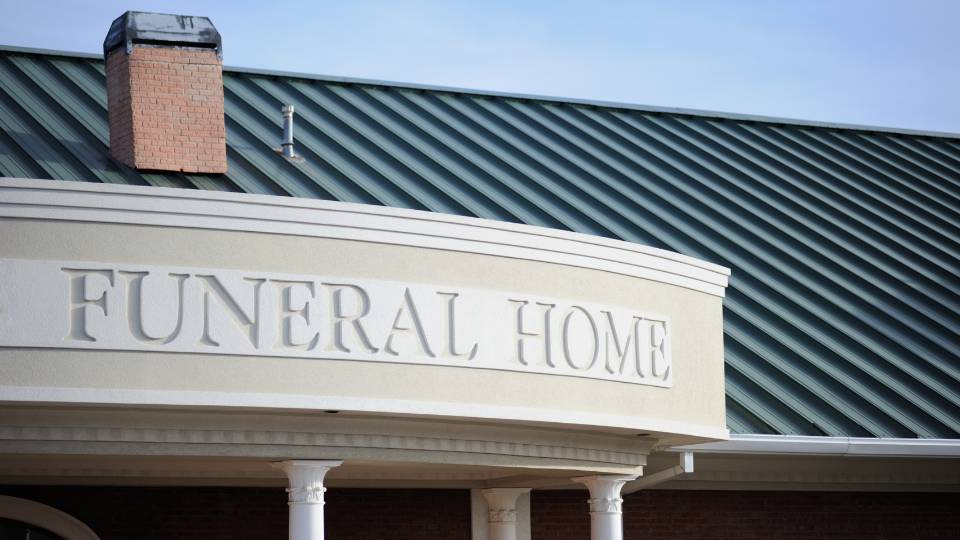
Funeral home waste is an important consideration of managing a funeral home.
As a funeral home owner in the UK, you are undoubtedly aware of the sensitive nature of your work and the responsibility it entails.
Beyond providing compassionate services, it’s crucial to consider the environmental impact of your operations, including the disposal of waste generated in the course of your services.
Table of Contents
- Understanding Funeral Home Waste
- Regulatory Framework Affecting Funeral Home Waste in the UK
- Responsible Funeral Home Waste Disposal Practices
- Environmental Impact Considerations of Funeral Home Waste
- Statistics and Facts about Funeral Home Waste
- Sustainable Practices for Funeral Homes
- Conclusion

Understanding Funeral Home Waste
Funeral homes produce several types of waste, including:
- Biomedical Waste: This includes tissues, fluids, and other materials from deceased individuals.
- Non-Biomedical Waste: Such as packaging materials, flowers, and other non-hazardous items used during ceremonies.
- Chemicals: Embalming fluids and other chemicals used in the preservation process.
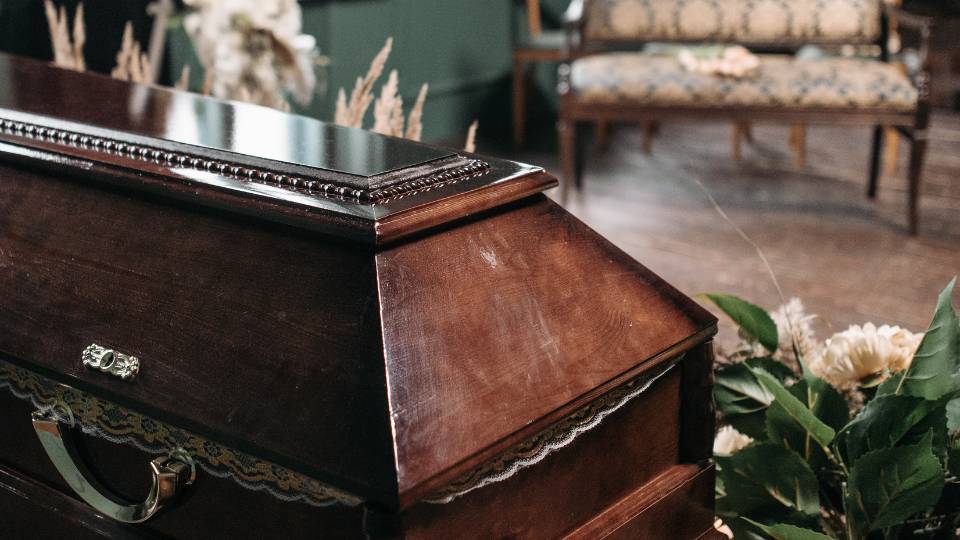
Regulatory Framework Affecting Funeral Home Waste in the UK
In the United Kingdom, the disposal of waste from funeral homes is regulated under the Environmental Protection Act 1990 and the Controlled Waste Regulations 2012.
These regulations aim to ensure that waste is managed responsibly to minimise environmental impact and protect public health.
Compliance involves proper segregation, transportation by licensed carriers, and disposal at authorised facilities, ensuring that potentially hazardous materials, such as embalming fluids, are managed safely and responsibly.
These measures not only uphold environmental standards but also maintain community health and safety across the industry.
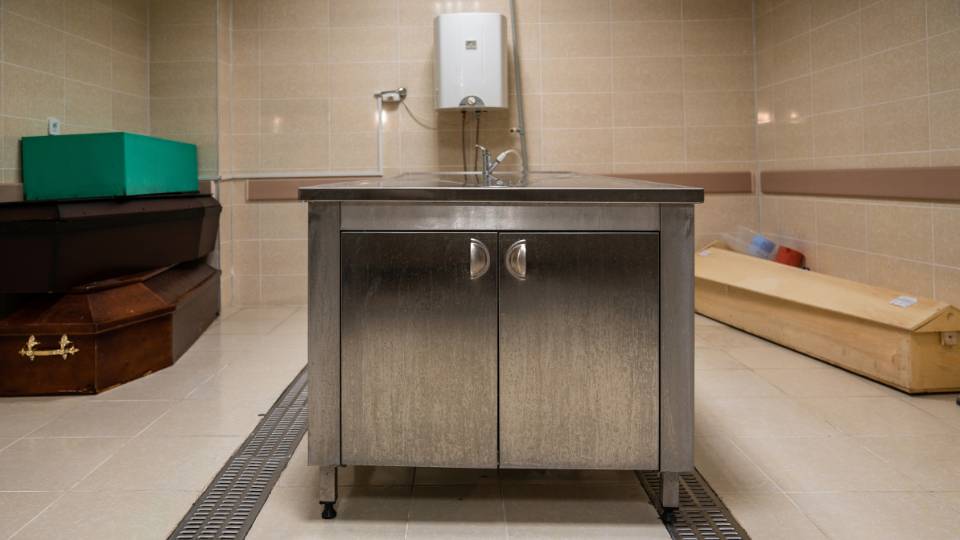
Responsible Funeral Home Waste Disposal Practices
Funeral homes must adhere to several key principles when managing their waste:
- Segregation:
Waste should be segregated into different categories (biomedical, non-biomedical, hazardous chemicals) to ensure proper disposal methods are followed.
- Licensed Waste Carriers:
Waste must be transported and disposed of by licensed waste carriers who follow legal guidelines and have the necessary permits.
- Specialist Facilities:
Biomedical waste, including human tissue and fluids, must be disposed of in specialist facilities licensed to handle such materials safely and compliantly.
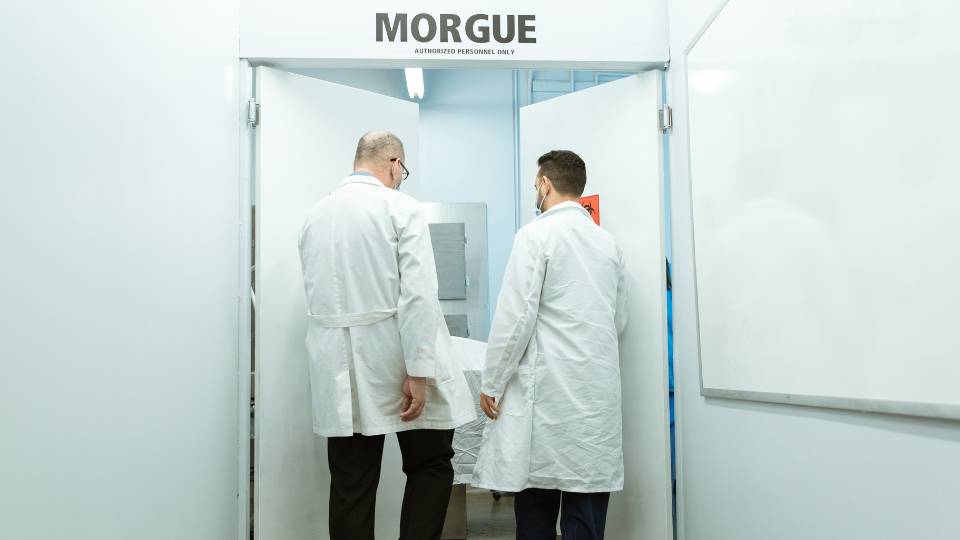
Environmental Impact Considerations of Funeral Home Waste
The funeral industry, like many others, has a carbon footprint that extends beyond direct operations.
Factors such as transportation, energy use, and waste disposal contribute to this impact.
By choosing eco-friendly options for materials and services, such as biodegradable coffins and minimising chemical use, funeral homes can reduce their environmental footprint.
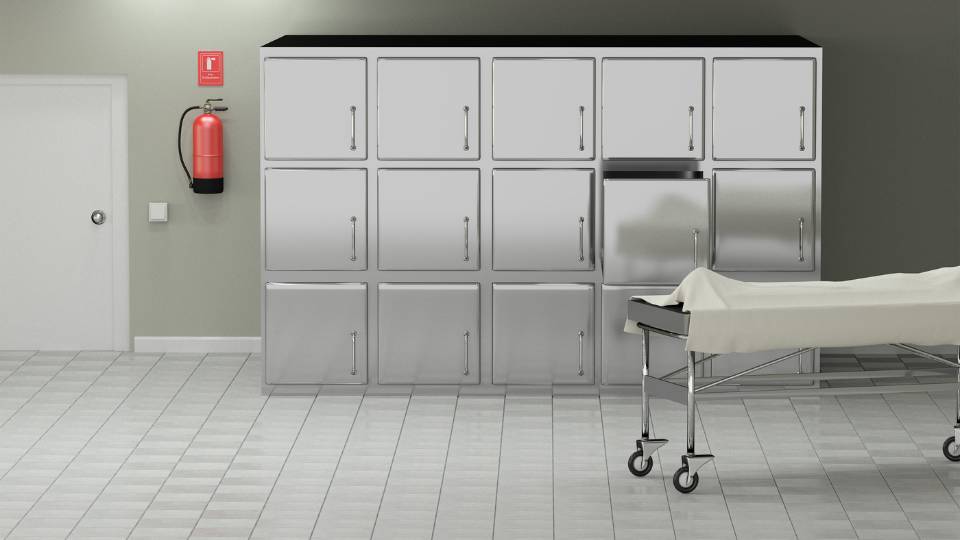
Statistics and Facts about Funeral Home Waste
- UK Cremation Rates: Approximately 75% of deceased individuals in the UK are cremated rather than buried, impacting the type and amount of waste generated.
- Chemical Use: Embalming fluid typically contains formaldehyde, a chemical regulated due to its potential health and environmental risks.
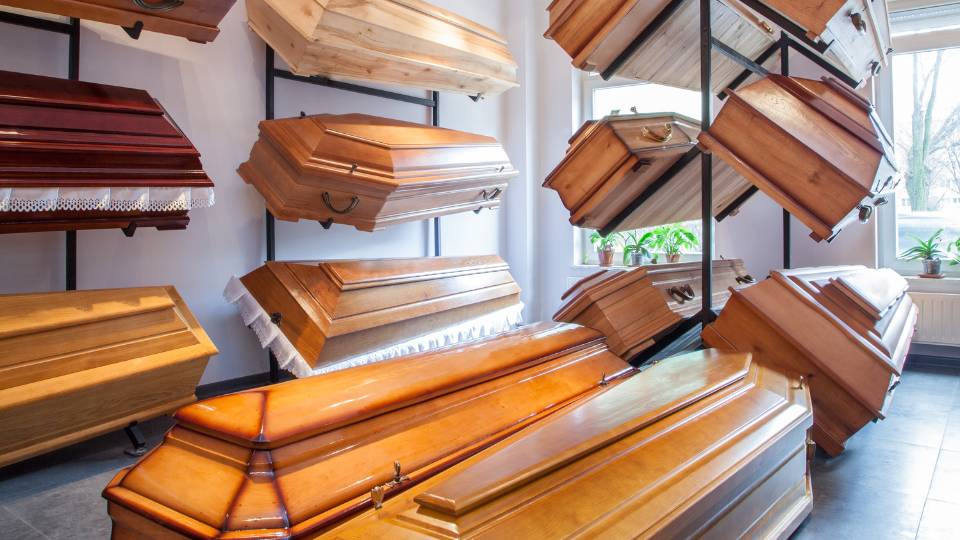
Sustainable Practices for Funeral Homes
To mitigate environmental impact further, consider implementing the following practices:
- Education and Awareness: Informing clients about environmentally friendly options can encourage sustainable choices.
- Recycling: Where possible, recycle materials such as cardboard, paper, and metals used in ceremonies.
- Carbon Offsetting: Explore partnerships with organisations that offer carbon offsetting programmes to balance emissions associated with your operations.

Conclusion
In conclusion, the disposal of waste from funeral homes in the UK requires careful consideration of legal obligations and environmental impact.
By adhering to regulations, implementing sustainable practices, and educating clients, funeral home owners can play a vital role in reducing their ecological footprint while continuing to provide essential and compassionate services.
Remember, every step towards sustainability not only benefits the environment but also enhances the reputation and community standing of your business in the eyes of environmentally conscious clients.







